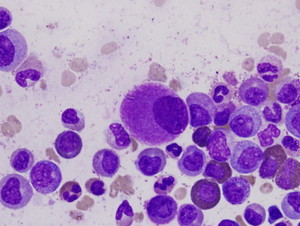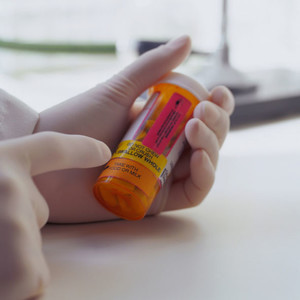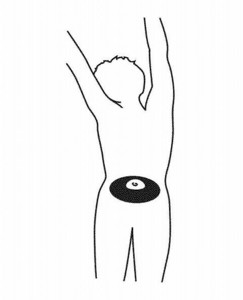With the begining of the era of tyrosine kinase inhibitors (TKIs), chronic myeloid leukaemia (CML) became a chronic disease, in which good responding patients usually have a life expectancy similar to the age- and sex-matched normal population [1]. In many countries, the first-line treatment of chronic phase CML is imatinib mesylate (IM). Whereas, especially in some developed countries, second generation TKIs (dasatinib, nilotinib) which have deeper and faster responses, but are also more expensive than IM, are utilized in the upfront setting. The introduction of TKIs increased the prevalence of CML, and optimal responders to IM should continue therapy indefinitely, so the originator TKI treatment (Gleevec) surely put a strain on healthcare providers even in developed countries.
The high and long-running costs of IM therapy have raised growing concerns about issues such as limited access to treatment and sustainability of national healthcare systems [2]. Generics of IM at a lower price could improve treatment penetration in patients with CML. There are very limited data regarding generics of IM, with conflicting results [3], so physicians caring for patients with CML have many questions regarding the efficacy and tolerability of such generics.
IM generics have been approved in many countries including Turkey [4] and the entry of IM generics into the Turkish drug market has resulted in substantial price reductions since August 2012. In order to evaluate the outcome of CML patients on generics and to answer questions regarding the efficacy and tolerability of the generics, our group, retrospectively, conducted two studies among our CML cohort [5, 6]. These studies suggest that the IM generics in Turkey are not only effective in the upfront setting [5], but may also replace the drug in patients on originator IM without causing any loss of response on short notice [6], and without any increase in adverse events (AEs) compared to the originator. These results have been confirmed with an extended follow-up and these new findings were presented at the European Hematology Association (EHA) Meeting in 2015.
In contrast to our findings, there are studies demonstrating that generics have inferior response rates with increased AEs compared to the originator [7, 8]. So with the conflicting and limited data at hand, it is difficult to make any decisive statements about the efficacy and safety of IM generics [3].
In conclusion, TKIs are the mainstay of CML treatment and patients with CML live close to normal life spans. The current prices of TKIs are high and the launch of generics might reduce healthcare costs. Among our patient cohort, the generics were at least non-inferior to the originator with respect to efficacy and tolerability when used in the upfront setting, as well as when used subsequently. However, further watchful monitoring and observation is still warranted and more reliable and solid long-term data should be accumulated before making any definitive conclusions about the efficacy and safety of generics in the treatment of patients with CML.
Conflict of Interest
AEE received Honorarium from Novartis. TE has no conflict of interest to declare.
Abstracted by Tugrul Elverdi (TE) and Associate Professor Ahmet Emre Eskazan (AEE), Cerrahpasa Faculty of Medicine, Department of Internal Medicinem, Istanbul University, Turkey.
Related articles
Effectiveness of ESAs in treating anaemia in kidney disease and cancer patients
Impact of breast cancer generics in Europe
References
1. Sasaki K, Strom SS, O’Brien S, et al. Chronic myeloid leukemia in chronic phase: survival in the era of tyrosine kinase inhibitors is similar to that of the general population in all age groups. Blood. 2014;124:1801.
2. Experts in Chronic Myeloid Leukemia. The price of drugs for chronic myeloid leukemia (CML) is a reflection of the unsustainable prices of cancer drugs: from the perspective of a large group of CML experts. Blood. 2013;121(22):4439-42.
3. Eskazan AE, Ar MC, Soysal T. The efficacy and tolerability issue of generics of imatinib in the treatment of chronic myeloid leukemia: do generics really jeopardize patient safety? Leuk Lymphoma. 2015;56(4):1182-3.
4. Soysal T, Eskazan AE, Ar MC. Generics in chronic myeloid leukemia: current arguments for and against and the established evidence. Expert Rev Hematol. 2014;7(6):697-9.
5. Eskazan AE, Ayer M, Kantarcioglu B, et al. First line treatment of chronic phase chronic myeloid leukaemia patients with the generic formulations of imatinib mesylate. Br J Haematol. 2014;167(1):139-41.
6. Eskazan AE, Elverdi T, Yalniz FF, et al. The efficacy of generic formulations of imatinib mesylate in the treatment of chronic myeloid leukemia. Leuk Lymphoma. 2014;55(12):2935-7.
7. Alwan AF, Matti BF, Naji AS, et al. Prospective single-center study of chronic myeloid leukemia in chronic phase: switching from branded imatinib to a copy drug and back. Leuk Lymphoma. 2014;55(12):2830-4.
8. Saavedra D, Vizcarra F. Deleterious effects of non-branded versions of imatinib used for the treatment of patients with chronic myeloid leukemia in chronic phase: a case series on an escalating issue impacting patient safety. Leuk Lymphoma. 2014;55(12):2813-6.
Permission granted to reproduce for personal and non-commercial use only. All other reproduction, copy or reprinting of all or part of any ‘Content’ found on this website is strictly prohibited without the prior consent of the publisher. Contact the publisher to obtain permission before redistributing.
Copyright – Unless otherwise stated all contents of this website are © 2016 Pro Pharma Communications International. All Rights Reserved.








 0
0











Post your comment